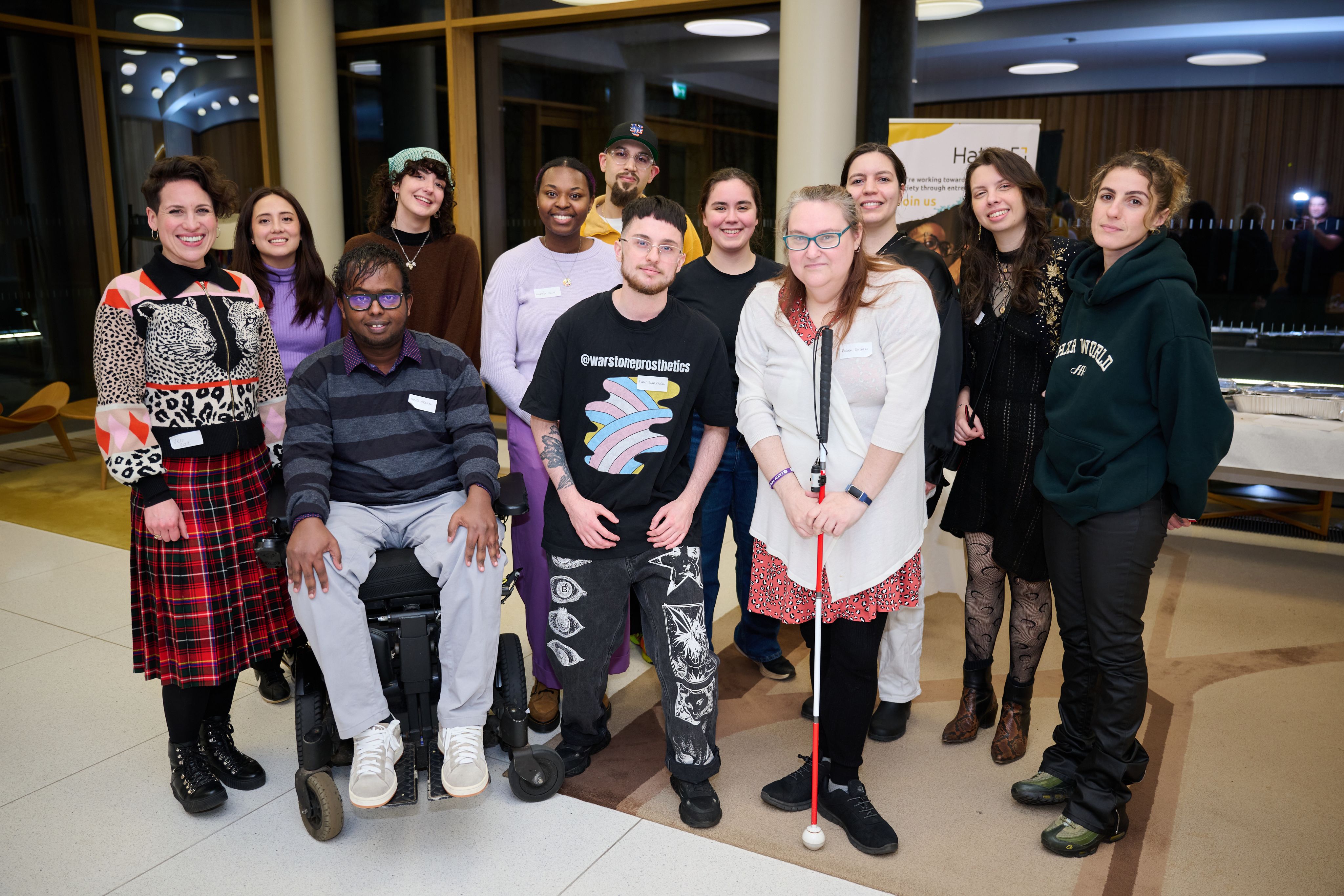Social enterprises in the UK push forward diversity efforts in challenging times
Exclusive insights from five years of SE100 applications

The number of social enterprises with equity, diversity and inclusion strategies has been steadily growing over the past five years, despite fresh challenges hitting their turnover and impact growth, reveals our deep dive into exclusive data drawn from hundreds of applications to the SE100 Index and Social Business Awards.
Social enterprises in the UK are ramping up diversity and inclusion efforts even as they face new challenges, exclusive data reveals.
Based on more than 800 applications submitted to the SE100 Index and Social Business Awards over the past five years, our analysis seeks to gauge the mood – and trends – in UK social enterprise through the lens of SE100 applicants.
SE100 is run by Pioneers Post in partnership with NatWest Social and Community Capital every year to select, celebrate and learn from the UK's most impressive social enterprises. To apply, social enterprises must fill a thorough application of more than 80 in-depth questions, ranging from business performance to impact measurement and environmental efforts.
- Explore the SE100 collection
SE100 applicants are a specific subset of the UK social enterprise community: because they are applying for awards, they are more likely to be in a good position from a business and impact perspective and show “best in class” practices. While by nature, their responses will tend to be more positive than for social enterprises in general, our analysis of five years’ worth of data reveals insightful trends for the sector.
Who are the SE100 applicants?
Overall, SE100 applicants show similar profiles year after year. A large majority are long-established: for each of the past four years, more than two thirds of candidates have been operating for five years or more, and less than one in six have been operating for less than three years.
The main sectors in which they operate have also remained consistent over the years: education, employment, health and social care and climate and the environment. About nine out of ten have measures in place to address their environmental impact.
Their two most common legal structures are company limited by guarantee and community interest company (CIC) limited by guarantee, and just under a third have charitable status. They are often led by women – every year since 2021, more than two-thirds of SE100 applicants said their leadership teams numbered more women than men.
The most recent winners include 2025's 'social business pioneers' Greenwich Leisure Limited (GLL), which started running swimming pools and other leisure facilities more than 30 years ago, and which now manages 260 leisure businesses across the UK, and Health & Independent Living Support (HILS), which supports older people. This year's 'pioneering newcomer' was Standing Tall, which matches homeless people with jobs and assists them to find safe places to live.
- Discover the SE100 2025 winners
Social entrepreneurs from across the country gathered at the SE100 Awards in 2024.
Social entrepreneurs from across the country gathered at the SE100 Awards in 2024.
This year's SE100 winner HILS provides support for older and vulnerable people through delivering meals and company.
This year's SE100 winner HILS provides support for older and vulnerable people through delivering meals and company.
SE100 awardee Greenwich Leisure Limited supports people to lead healthy lifestyles while providing employment, educational and training opportunities.
SE100 awardee Greenwich Leisure Limited supports people to lead healthy lifestyles while providing employment, educational and training opportunities.
Diversity efforts on the rise
In the past four years, social enterprises applying for the SE100 have been increasing their efforts in equity, diversity and inclusion, with the data showing a steady upwards trend toward social enterprises establishing a policy addressing EDI.
When asked if their organisation had an “EDI policy and action plan that is agreed at board level,” 83.50% of applicants responded yes this year.
Last year, 81.44% of applicants reported having an EDI policy, 78.49% had one in 2023 and in 2022, only 70.16% did.
SE100 applicants have also increased the number of ‘champions’ within their senior teams who are dedicated to leading EDI policy and practice.
77.7% of social enterprises that responded to the question report that they have a champion for EDI policy – a 19% increase from 2022.
Reality check
But more organisations having EDI policies has not impacted how many companies designate a specific budget to investing in EDI resources. This year, almost half of SE100 applicants had a specific budget for EDI, a proportion consistent with the past four years.
And more social enterprises having EDI policies in place has not yet translated to more ethnically diverse boards. Since 2022, the percentage of enterprises that have Asian, Black or ethnically diverse people make up more than 50% of their board has decreased and the number of enterprises with no one from any of those backgrounds on their board has increased.
The proportion of women that make up the boards of the applicants has remained fairly flat. This year, 56.73% of SE100 applicants had women make up more than half of their board – a marginal increase since 2022, when the number was 52.76%.
“Sirlute's commitment to DEI practices are an example to us all and clearly helping those who often forgotten by society”
83.5%
of SE100 applicants had a diversity and inclusion strategy in 2025

Up and down: from pandemic recovery to fresh challenges
Several indicators, including turnover growth, business sentiment and impact, suggest social enterprises are facing fresh challenges after a period of recovery from the Covid-19 pandemic.
At the tail end of the pandemic in 2021, more than half of SE100 applicants reported a negative or slow turnover growth. By 2023, this figure had steadily gone down to just under 40% – but it has crept up again since, to a level higher even than in 2021, with 55.5% of SE100 applicants reporting negative or slow growth this year.
A similar trend is visible in terms of business sentiment: despite SE100 applicants generally reporting high levels of optimism, the share of those saying they were “optimistic for the future” fell from a post-Covid high of 76% in 2023 to 67.8% this year.
The data also shows an up-and-down pattern when it comes to impact growth. The share of SE100 candidates saying they made more positive impact in their most recent year steadily grew from 78.3% in 2021 to 93.7% in 2024 – only to fall back to 90.1% this year.
The underlying reasons for this trend are not obvious: the main challenges to growth mentioned by SE100 applicants remain the same year after year: winning contracts and increasing trading activity, and access to capital/investment. The past three years have, however, seen a surge in social enterprises pointing to cost of living as an obstacle: it was mentioned as a main barrier to growth by 8.73% of applicants in 2023, rising to 12.75% this year.
SE100 applicants however do not seem to give up on growth ambitions, with an increasing proportion reporting taking on social investment, growing from 32% in 2021 to 45% this year.
Tim West, founding editor of Pioneers Post, said: “Our SE100 data appears to tell a story of positive attitudes that are not necessarily matched to an equal degree by positive action. For example, there are more policies to promote equality but boards appear to be going backwards in their progress.
“Nevertheless, although winning contracts and access to investment persist as a major challenges, with added pressure from cost of living increases, it is heartening to see that UK social enterprises remain ambitious - both for their future growth and their impact.”
Top image: Sirlute; other images courtesy of SE100 and specified social enterprises. Design by Fanny Blanquier.
Help Pioneers Post understand its impact by answering this short survey:







